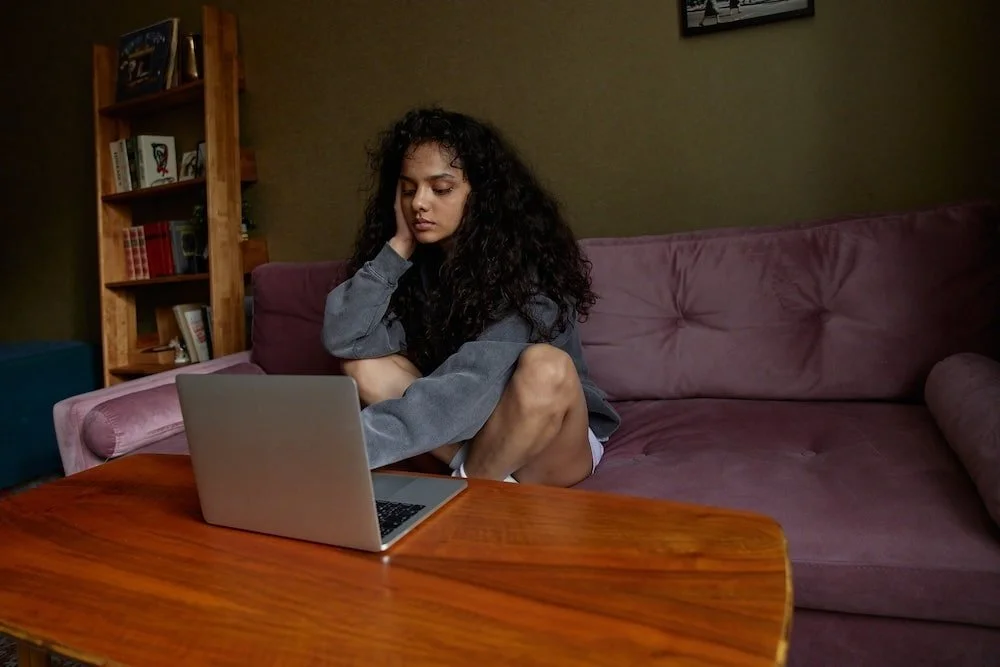Hyper-Independence: A trauma Response?
Hyper independence, characterized by an excessive reliance on oneself and a reluctance to seek help or support from others, can be a trauma response rooted in past experiences of trauma or adverse childhood events. Let’s delve into the effects of hyper-independence on individuals' emotional well-being, relationships, and overall life satisfaction. Moreover, we will discuss strategies for healing and cultivating healthy interdependence, emphasizing the importance of connection, vulnerability, and seeking support.
Cultivating Hope in Times of Despair
When hope seems elusive, it is essential to recognize that hope is not a passive emotion but an active mindset that can be cultivated. In this article, we will explore the concept of hope and provide practical strategies to develop hope when you feel trapped in hopelessness. By understanding the power of hope and adopting effective techniques, individuals can regain a sense of purpose, resilience, and optimism.
ADHD and Productivity Management
Difficulties with attention, focus, and impulsivity can make it challenging to prioritize tasks, meet deadlines, and maintain a structured routine. However, with effective time management strategies tailored to the unique needs of individuals with ADHD, it is possible to improve productivity, reduce stress, and achieve goals. In this article, we will explore the relationship between ADHD and time management, as well as provide practical strategies to enhance task organization and productivity.
Should you Take Intermittent Breaks from Digital devices
In today's digital age, our constant connection to digital devices has become an integral part of our lives. However, this continuous exposure to screens can have a significant impact on our mental health, particularly anxiety. Excessive screen time, information overload, and the pressures of constant connectivity can contribute to heightened anxiety levels. In this article, we will explore the relationship between anxiety and digital devices and discuss the benefits of taking intermittent breaks from screens as a strategy to find balance and promote overall well-being.
How To Cope With Trauma Reactions
Trauma is a deeply distressing event that overwhelms a person's ability to cope, leaving lasting emotional and psychological impacts. Coping with trauma is a complex and individualized process, but there are effective strategies that can help survivors navigate their healing journey. In this article, we will explore common trauma reactions, the impact of trauma on mental health, and provide practical coping strategies to promote resilience, healing, and well-being.
How To Tell If you’re stuck in a Rut and What to do About it
Feeling stuck in a rut is a common experience that many people encounter at different stages of their lives. Recognizing when you're stuck in a rut is essential for initiating positive change and personal growth. In this article, we will explore the signs that indicate you might be stuck in a rut and provide practical strategies to help you break free and regain a sense of purpose and fulfillment.
ADHD and Rejcetion Sensitivity Dysphoria
One lesser-known aspect of ADHD is Rejection Sensitivity Dysphoria (RSD), which refers to the heightened emotional response to perceived rejection or criticism. RSD can intensify emotions and lead to significant distress for individuals with ADHD. Managing these intense emotions is crucial for maintaining healthy relationships and overall well-being. In this article, we will explore coping strategies and techniques that can help individuals with ADHD effectively navigate and cope with Rejection Sensitivity Dysphoria.
Friendship Anxiety: Navigating the Complexities of Social Connections
Friendship is an essential aspect of human life, providing us with emotional support, companionship, and a sense of belonging. However, for some individuals, the pursuit and maintenance of friendships can be accompanied by feelings of anxiety and unease. This phenomenon, known as friendship anxiety, is a distinct form of social anxiety that centers around concerns and fears related to friendships and social connections. In this article, we will delve into the nature of friendship anxiety, explore its causes and symptoms, and discuss strategies for coping and overcoming these challenges.
WHAT IS DIGITAL ANXIETY AND HOW TO COPE
In today's fast-paced digital world, our lives are intertwined with technology, offering convenience, connection, and countless opportunities. However, alongside the benefits, there is a growing phenomenon known as digital anxiety. In this article, we will explore what digital anxiety is, its causes and symptoms, and provide practical strategies to navigate and manage it effectively.
How working moms can cope with depression
The juggling act of being a working mom can be overwhelming and exhausting. Balancing career responsibilities with the demands of motherhood can take a toll on mental health, leading to feelings of depression and anxiety. In this article, we will explore the unique challenges faced by working moms and provide strategies and coping mechanisms to help navigate the journey of motherhood while prioritizing mental well-being.
WHAT HOLLYWOOD GETS WRONG ABOUT TRAUMA
Hollywood has long been known for its ability to captivate audiences with compelling stories and intense emotional experiences. However, when it comes to depicting trauma on the big screen, there are often misconceptions and inaccuracies that can perpetuate misunderstandings about this complex topic. In this article, we will explore the ways in which Hollywood tends to misrepresent trauma.
DEPRESSION IN COLLEGE STUDENTS: COPING WITH ACADEMIC PRESSURES AND MENTAL HEALTH
College is often considered a transformative period in a young person's life, full of opportunities for growth and self-discovery. However, it can also be a time of significant stress and mental health challenges, with depression being one of the most prevalent conditions affecting college students. In this article, we will delve into the topic of depression in college students, exploring the unique challenges they face and discussing effective coping strategies to maintain mental health during this crucial phase of life.
Anxiety and Sleep: How to Improve Your Sleep Quality to Reduce Anxiety
Anxiety and sleep are closely intertwined, with one often affecting the other. Anxiety can disrupt sleep patterns, leading to difficulty falling asleep, staying asleep, or experiencing restful sleep. On the other hand, inadequate sleep can exacerbate anxiety symptoms, creating a vicious cycle. Fortunately, there are strategies and techniques that can be employed to improve sleep quality, reduce anxiety, and break the cycle. This article will explore the connection between anxiety and sleep, and provide practical tips and techniques to help improve sleep quality and manage anxiety for a more restorative and peaceful sleep.
Tips for Organizing Your Home When You Have ADHD
With effective strategies and a tailored approach, it is possible to create an organized and functional living environment. This article will provide practical tips and techniques to help individuals with ADHD streamline their organizing process, reduce clutter, and create a more structured and stress-free home.
Mindfulness for ADHD: How to Practice Mindfulness to Reduce Symptoms
Mindfulness, a practice rooted in present-moment awareness, can be a valuable tool for individuals with ADHD to reduce symptoms and enhance overall well-being. Let’s explore how to practice mindfulness specifically tailored for individuals with ADHD to help manage their symptoms effectively.
Routines to Reduce Depression: Nurturing Mental Well-being
Living with depression can be challenging, but establishing and maintaining healthy routines can play a crucial role in managing symptoms and promoting overall well-being. Routines provide structure, stability, and a sense of purpose, which are particularly important when navigating the difficulties associated with depression. Let’s explore a range of routines that can help reduce depression and foster a sense of mental well-being.
Routines That Help Reduce Anxiety: Establishing Calm and Stability
Living with anxiety can be challenging, but implementing healthy routines can provide a sense of stability, control, and calmness. Routines can help individuals manage anxiety by creating structure, reducing uncertainty, and promoting self-care. Let’s explore a range of routines that can help reduce anxiety and enhance overall well-being.
Common thought Traps keeping you stuck in Anxiety
Often, anxiety is perpetuated by thought patterns that trap individuals in a cycle of worry and fear. These thought traps can hinder personal growth, impair relationships, and diminish overall well-being. Let’s explore some common thought traps that keep people stuck in anxiety and provide strategies to overcome them.
Creativity and Depression
Creative expression can take many forms, including writing, painting, drawing, dancing, singing, and playing music. Whatever the form of expression, there are many potential benefits for people with depression. Learn more.
Common Triggers for Adults Who Experienced Childhood Neglect
Neglect during childhood can manifest in various ways, impacting an individual's emotional well-being, relationships, and overall quality of life. Let’s explore the triggers that adults with a history of childhood neglect may experience, shedding light on the complexity of their experiences and offering insights into the healing process.




















